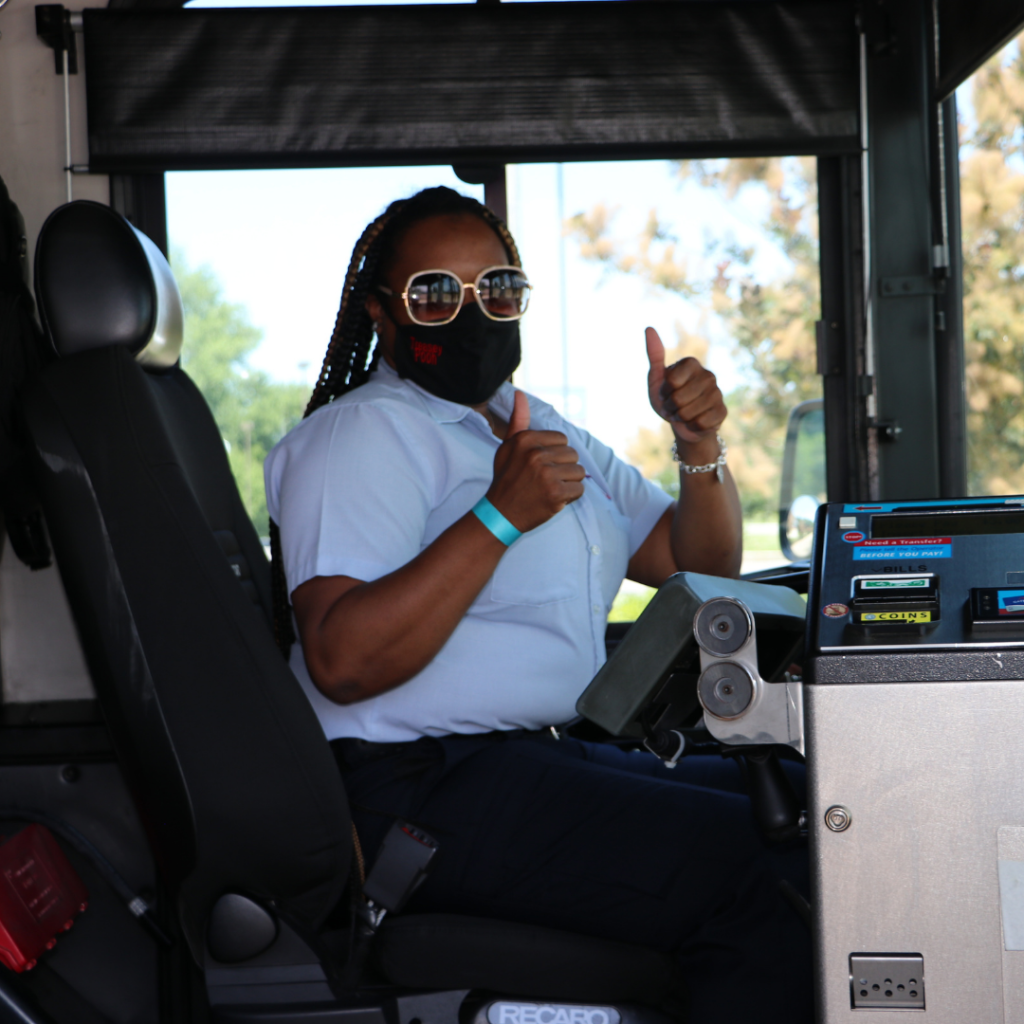Labor shortages are affecting industries across the nation at alarming rates, and Missouri transit providers have not been spared. Finding, training, and retaining reliable, punctual, and essential public transportation operators and staff has long been a struggle for the industry as a whole, a problem now exacerbated by Covid-19 and the national labor shortage.
Missouri’s two largest transit providers, St. Louis Metro Transit (Metro) and Kansas City Area Transit Authority (KCATA) have both announced service reductions due to a shortfall in available staff. In St. Louis, Metro is cutting routes while expanding microtransit options to help fill in the gaps for riders. In Kansas City, KCATA is reducing frequency on the Main Max line. A detailed accounting of changes to come for each of the providers is outlined below.
Main MAX Reduced Due to COVID Impact and Staffing Shortages
RideKC is rolling back some transit service due to staffing issues and the continuing impacts of the COVID-19 pandemic. Effective Sunday, Oct. 24, Main MAX will travel between downtown, the Plaza and Waldo every 30 minutes instead of every 15 minutes on weekdays and Saturdays. Times will change on Sundays, and the route will continue to run every 30 minutes on Sundays.
All Main MAX trips will travel between 3rd & Grand and Waldo. Times for all trips will change.
New schedules are available here: Weekday – Saturday – Sunday – Map. The maps and timetable will reflect the new times and the current reroute on Broadway. This will also be reflected in RideKC’s official app Transit starting Oct. 24.
For route and schedule information, visit RideKC.org any time or call the RideKC Regional Call Center at (816) 221-0660, weekdays from 6 a.m. to 6 p.m. For more information about changes to the KCATA schedule, click here.
Metro Transit To Reduce Service Hours Due to Workforce Shortage, Expanding Via Pilot to Fill in Gaps
Bi-State Development announced significant November 2021 service changes during their Operations Committee meeting held virtually on Friday, October 15, 2021. These changes come as a response to Metro’s operator shortage. Metro sited measures that are currently in place to mitigate issues caused by the shortage including assistance of operators volunteering to work additional hours and assigning managers to drive whenever possible. Metro will reduce service hours by approximately 10% in November and a roughly 15% decrease since June 2021. Metro aims to increase service hours again as soon as operator availability permits. MetroBus service in St. Clair County, IL will remain stable in November 2021.
In addition to reducing fixed-route service hours, Metro plans to expand the Via Metro STL Program to fill gaps where bus reductions have occurred and offset the immense demand for Call-A-Ride. In late October, Metro will begin a customer outreach campaign to inform customers about the November 29 service change and ensure they are aware of alternatives including Via and Lyft.
Metro plans to temporarily suspend six routes while reducing either frequency or span of service on another 21 routes. Further details on these temporary service reductions are as follows:
- 14 Local routes will adjust weekday daytime service from 30-minute to either 40- or 60-minute frequency
- 4 Frequent routes will adjust weekday daytime service (3 routes moving from 15-minute to 20- minute frequency, and one route moving from 20- to 30-minute frequency)
- 2 routes will have evening service reduced from 30- to 60-minutes
- 4 routes will shorten the evening span of service due to low nighttime demand; 3 of those routes, located in North County, have a replacement microtransit service after 8 PM
- 6 routes temporarily suspended
- Includes all 4 Express routes
- Includes 2 local routes in South and West County — #46-Tesson Ferry and #65-Outer Forties – which will be fully covered by microtransit service
Via Metro STL pilot expansion details are as follows:
- A third “West Zone” will be established in November, to cover employment and healthcare destinations along Outer Forty Road (such as medical facilities and senior/assisted living centers).
- The current South Zone will expand north to Manchester Road, so that the Via service area encompasses some common Call-A-Ride booking request locations.
For more information about job opportunities with Missouri Transit, click here.
